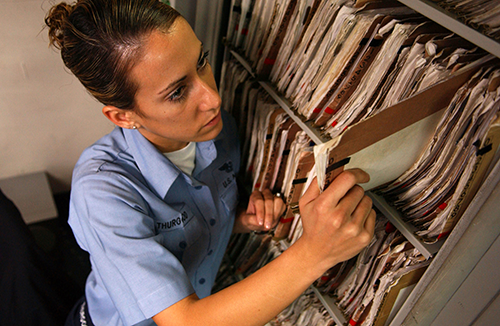Feb 08 2016 Data Across Sectors for Health bridges sectors and disciplines to leverage shared data for community health
 In 2014, the Robert Wood Johnson Foundation (RWJF) launched the Data for Health Initiative, hosting events in five cities across the United States to explore how data can be collected and shared to build a “Culture of Health.” In Data for Health: Learning What Works, a report resulting from these events, RWJF shared its excitement about new technologies — from electronic medical records to the Internet of Things — that could provide useful information about community health. “All these new, promising data sets — may one day become useful, helpful information that many can use to improve health,” outlines the report. “That will only happen, though, when people both can access the data and even more importantly trust they can do that with confidence.” RWJF is now ensuring that these next steps are taken, with the creation of Data Across Sectors for Health (DASH), a national program to support multi-sector collaborations sharing data and information to improve the health of their communities.
In 2014, the Robert Wood Johnson Foundation (RWJF) launched the Data for Health Initiative, hosting events in five cities across the United States to explore how data can be collected and shared to build a “Culture of Health.” In Data for Health: Learning What Works, a report resulting from these events, RWJF shared its excitement about new technologies — from electronic medical records to the Internet of Things — that could provide useful information about community health. “All these new, promising data sets — may one day become useful, helpful information that many can use to improve health,” outlines the report. “That will only happen, though, when people both can access the data and even more importantly trust they can do that with confidence.” RWJF is now ensuring that these next steps are taken, with the creation of Data Across Sectors for Health (DASH), a national program to support multi-sector collaborations sharing data and information to improve the health of their communities.
DASH recently announced its first round of grants to 10 cross-sector data sharing projects across the country, totaling $2 million and tackling a range of issues from childhood lead hazard in Chicago to the relationship between housing and health in Seattle to the medical treatment of adults with severe mental illness in San Antonio. The DASH National Program Office is led by the Illinois Public Health Institute, in partnership with the Michigan Public Health Institute, which will support grantees throughout their projects with development, implementation, and evaluation.
The collaborative projects will bring together the government, business, and non-profit sectors, while also linking disciplines that are typically siloed — health care, social services, housing, education, transportation, and law enforcement. Multi-sector data sharing will help “key stakeholders make better decisions that lead to lower health care costs and healthier communities,” according to a press release from DASH. DASH will also help facilitate peer-to-peer learning among the 10 programs through the creation of a shared learning platform. “We are fostering a learning collaboration intended to spin off lessons for an emerging field,” explained Peter Eckart of the Illinois Public Health Institute.
“In order for our community to see better health outcomes, we need more comprehensive data — including data that sheds light on the social determinants beyond clinical health care that influence our health.”
The Allegheny County Health Department (ACHD) in Pennsylvania, one of the 10 grantees, will focus on gathering data to better understand cardiovascular disease in the county, according to an article in the South Pittsburgh Reporter. “In order for our community to see better health outcomes,” explained Dr. Karen Hacker, the Director of ACHD, “we need more comprehensive data — including data that sheds light on the social determinants beyond clinical health care that influence our health.” To gain this range of data, the ACHD will be collaborating with other government departments (such as the Allegheny County Department of Human Services and the Economic Development Agency), universities (such as Carnegie Mellon’s Traffic 21 Institute and the University of Pittsburgh Graduate School of Public Health), and representatives from the private and philanthropic sectors (such as the UPMC Health Plan and the Jewish Health Care Foundation).
Committing to information sharing is a key tactic in intersector collaboration — Openly sharing information, including disclosing sensitive facts, gives collaboration partners a more comprehensive understanding of the issue and builds trust among partners. Further, if the collaboration can instill confidence among partners that the data will be managed with safety and security, partners will be more likely to share information that is relevant to the collaboration’s efforts. With data sharing expertise and support from DASH, these 10 initiatives are likely to be able to get organizations and agencies to contribute important data that they otherwise may have been reluctant to share, leading to a fuller understanding of the issue and better results.
